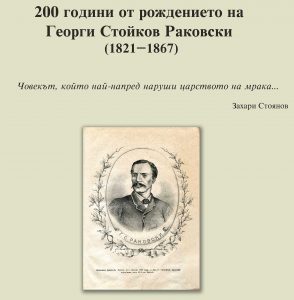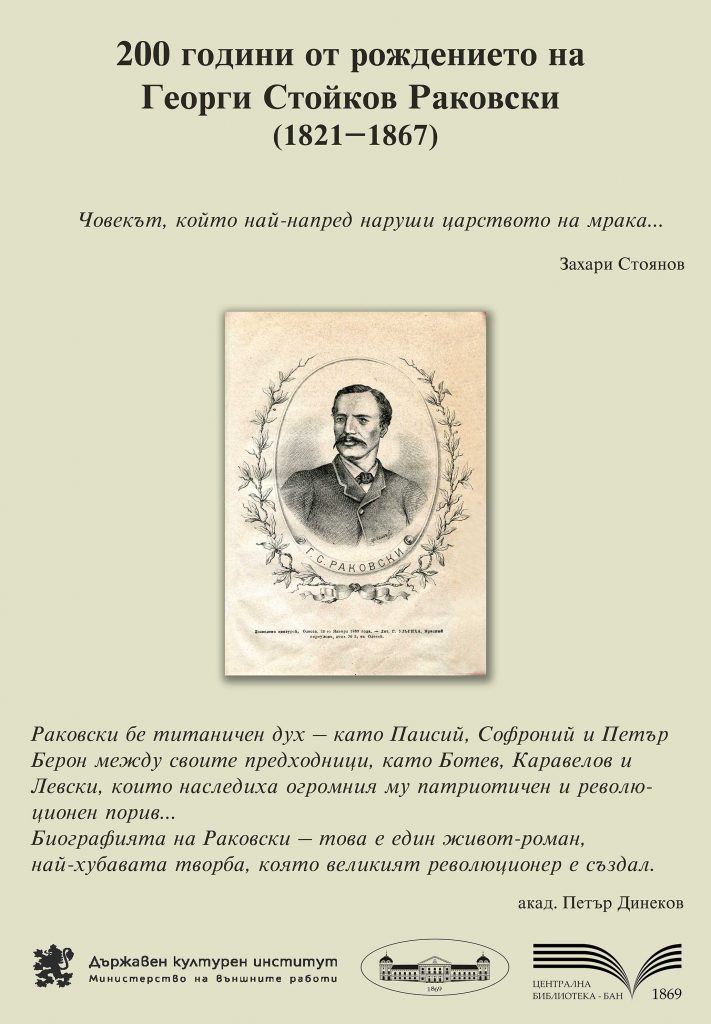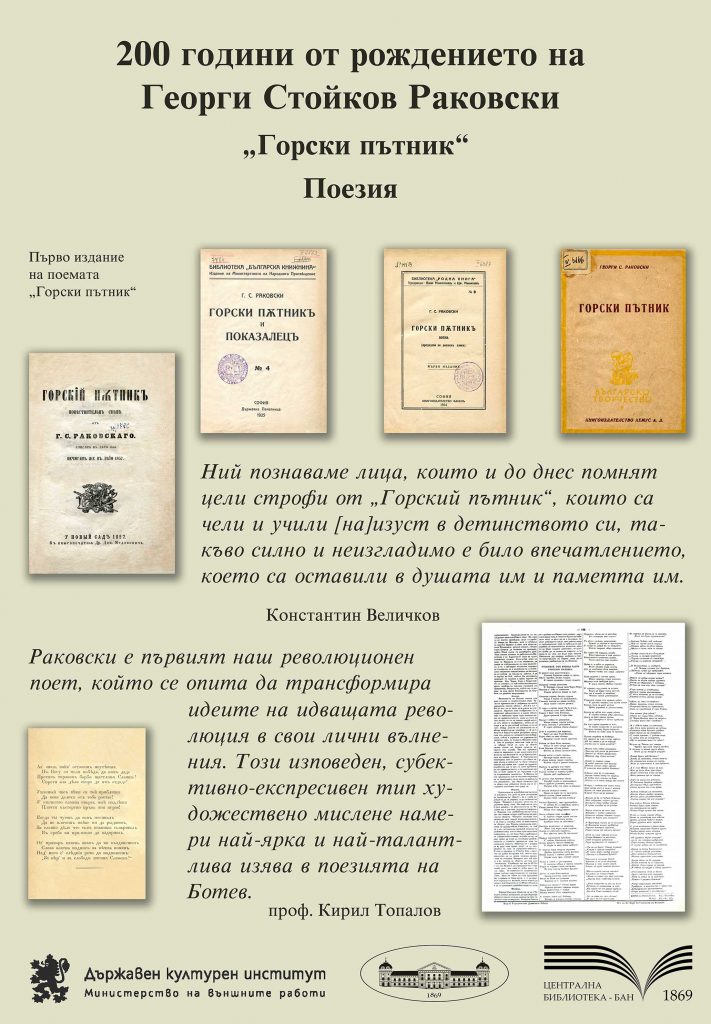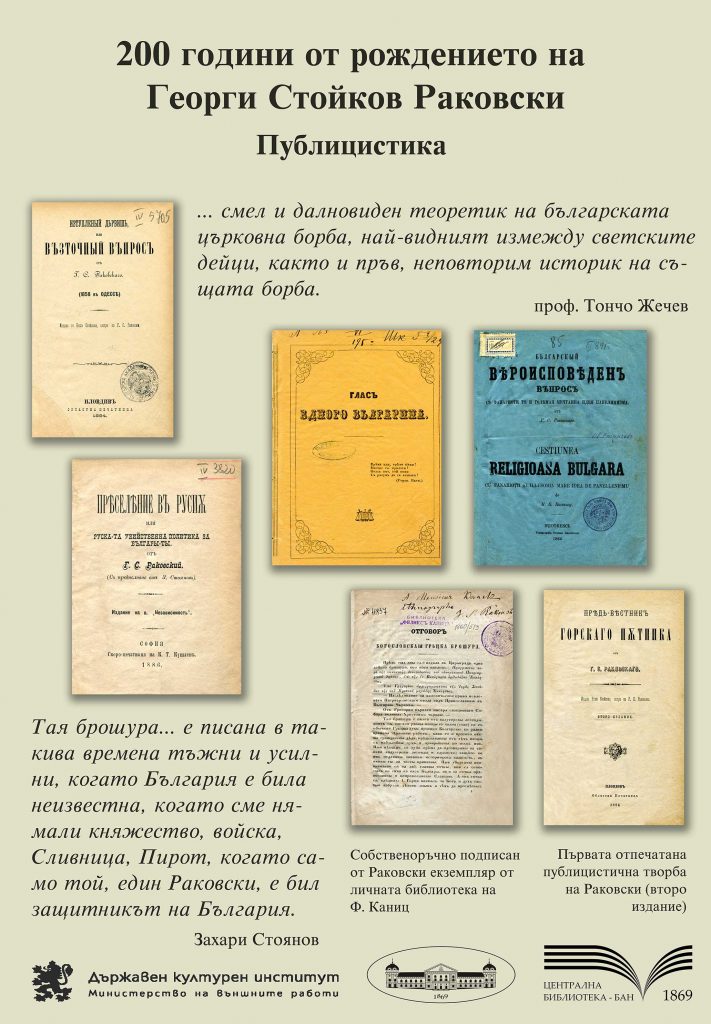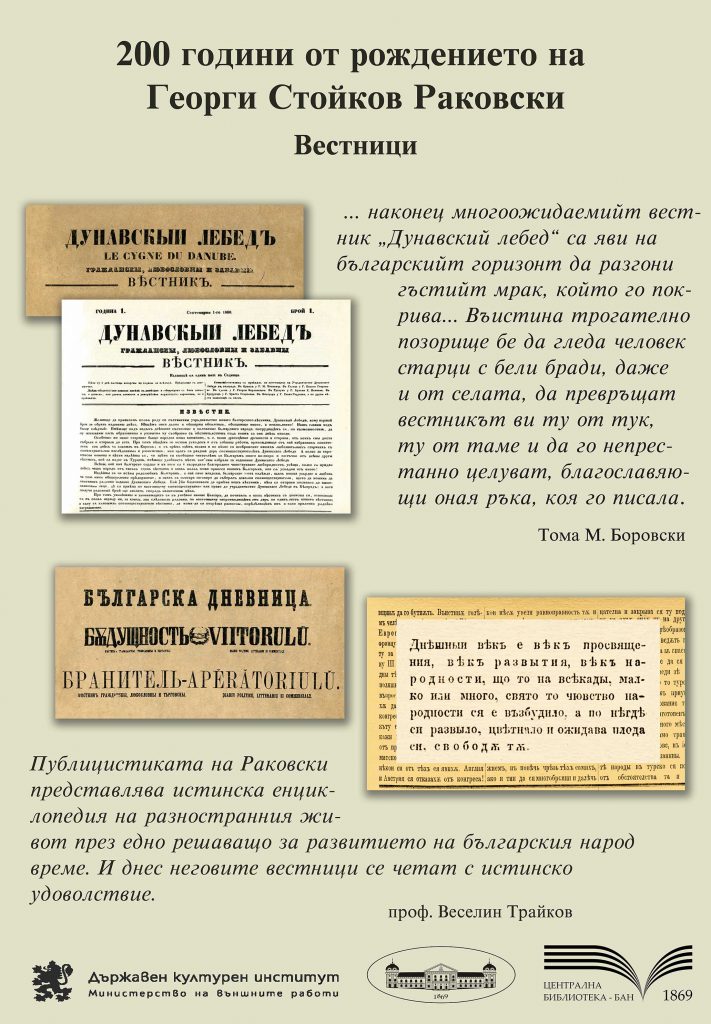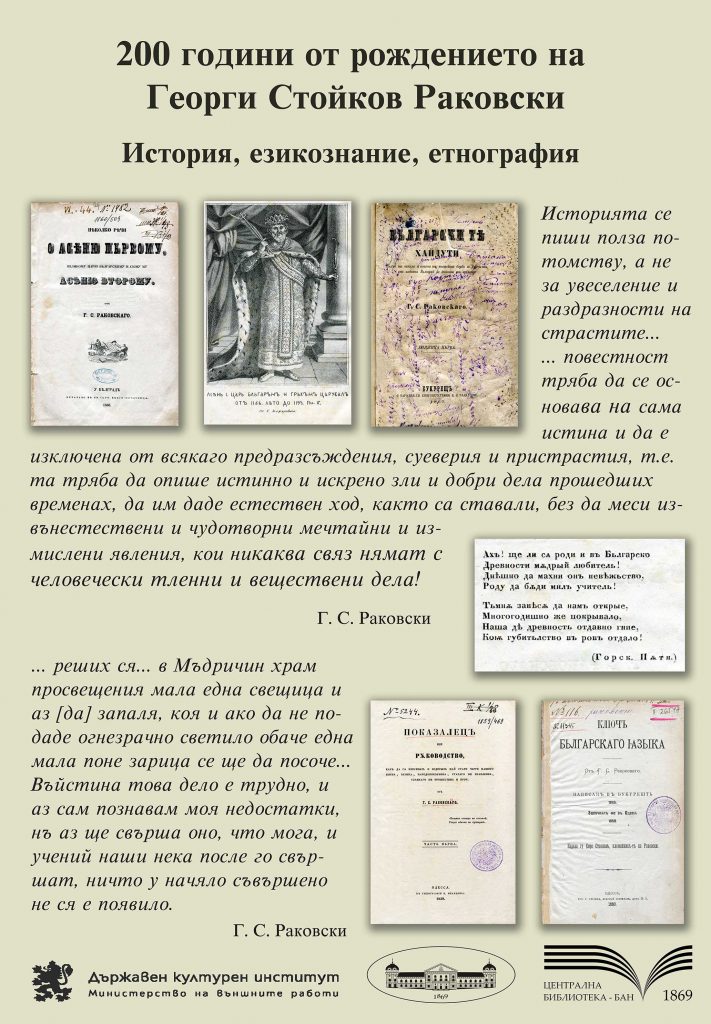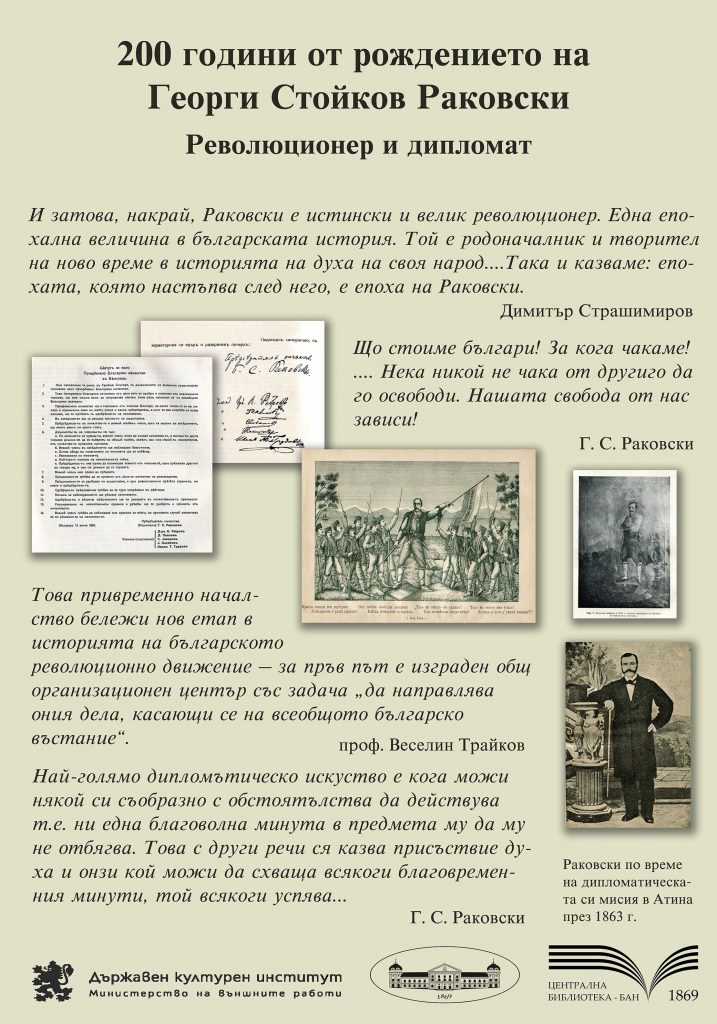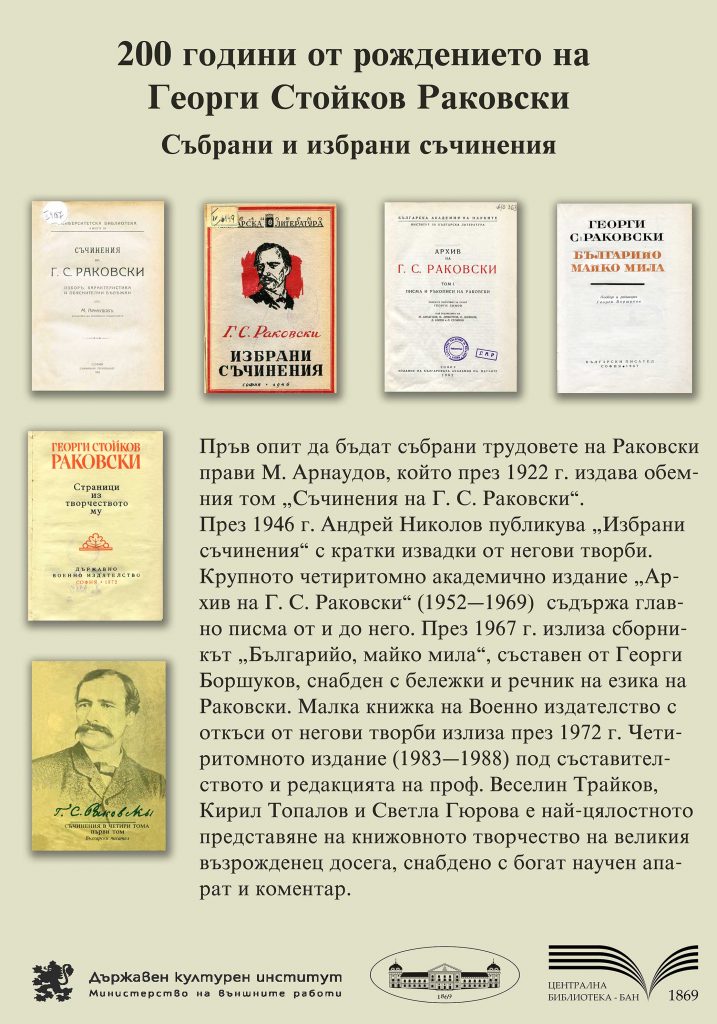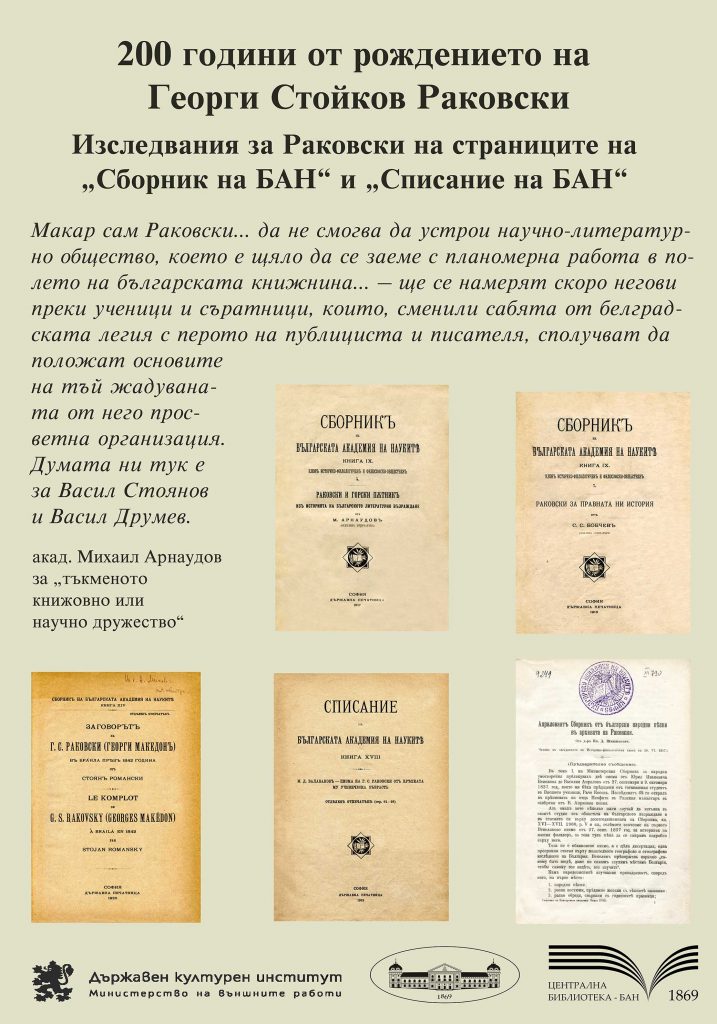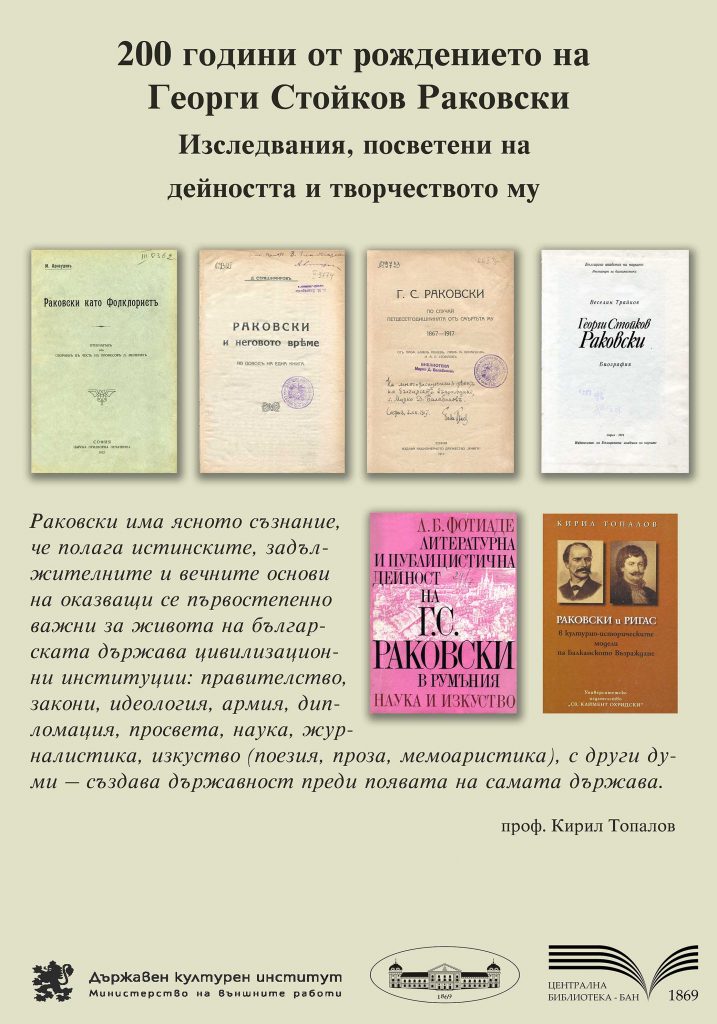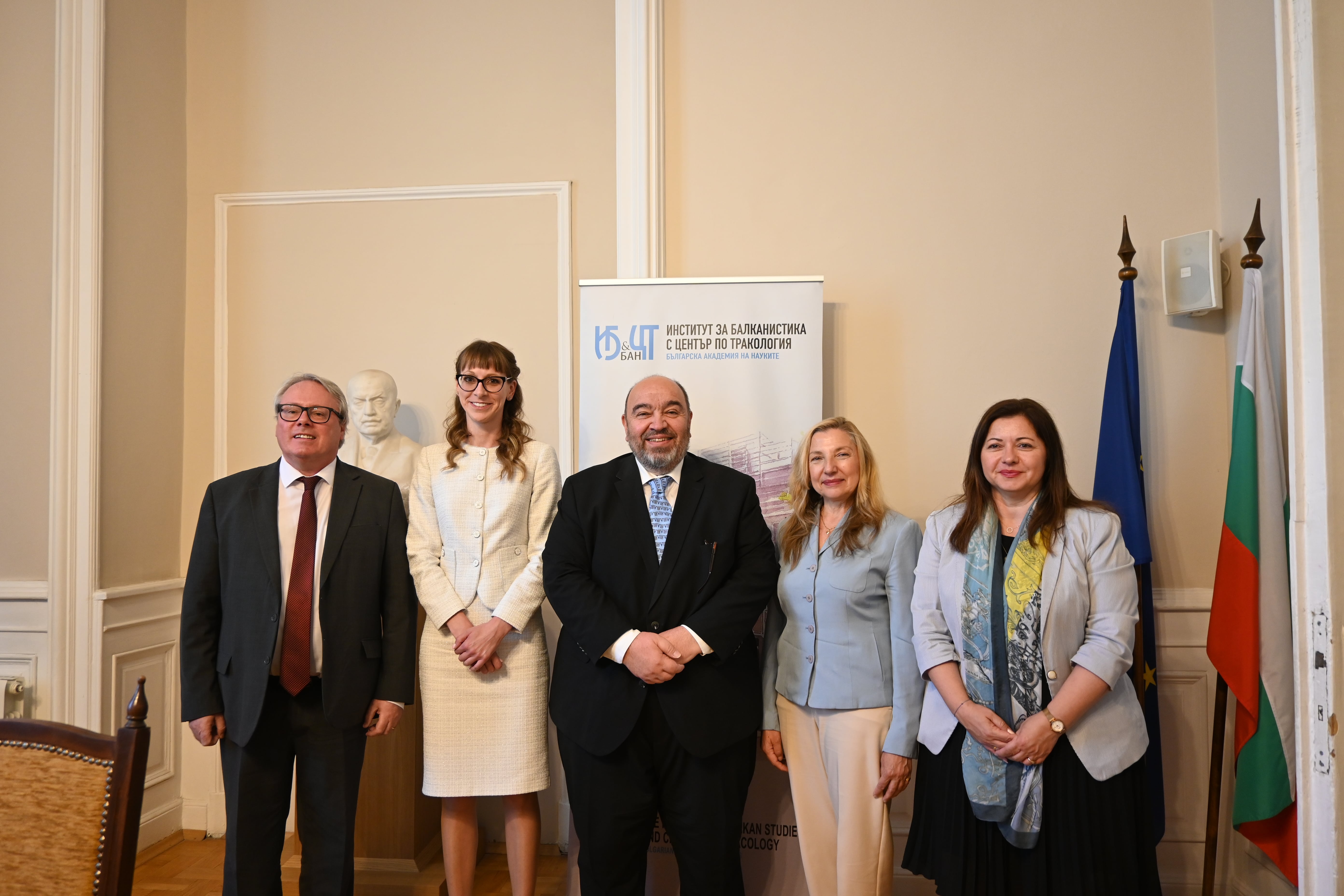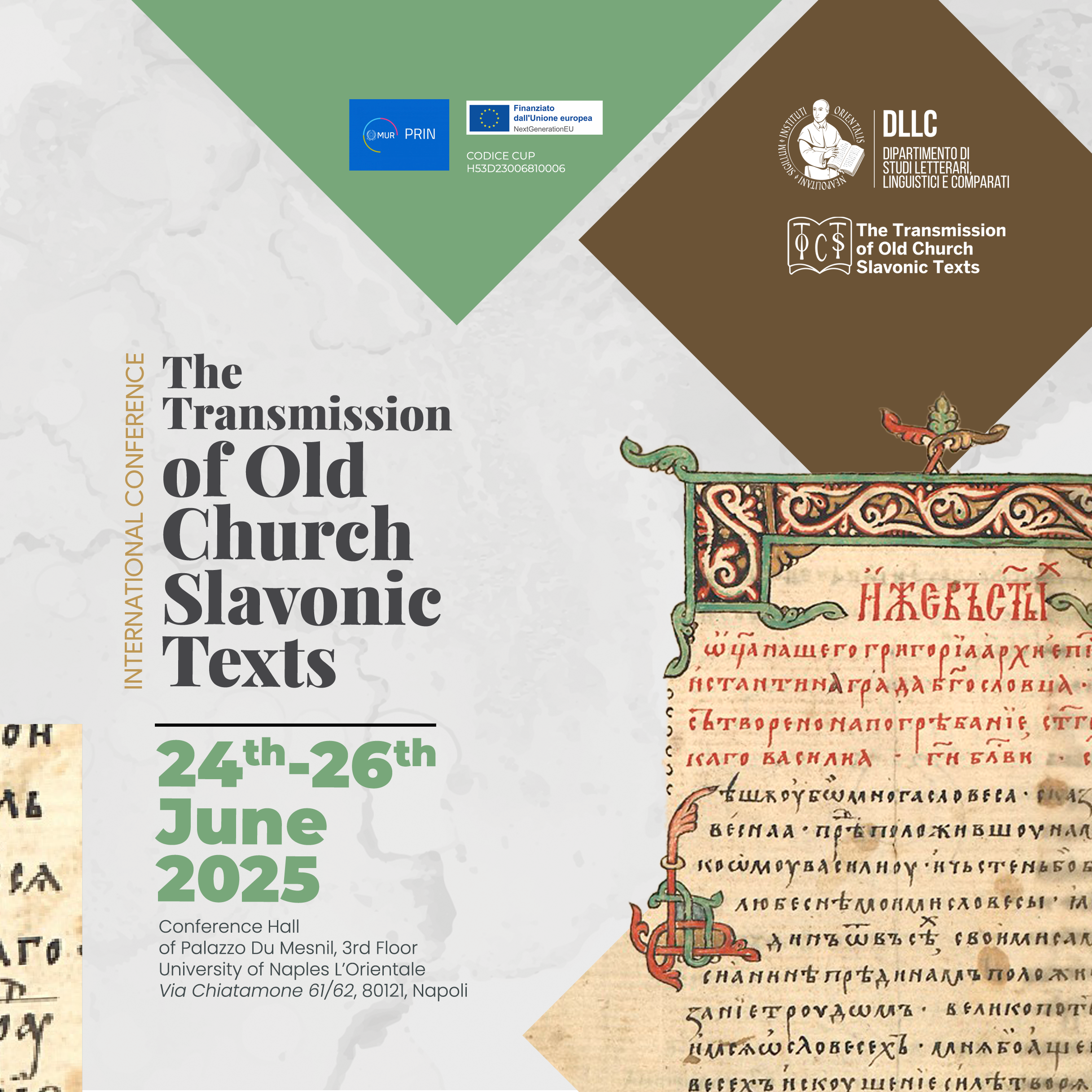The Bulgarian Academy of Sciences celebrates the 200th anniversary of the birth of the great revolutionary Georgi Stoykov Rakovski with a poster exhibition which is arranged in the central foyer of BAS. The exposition traces the diverse performances of the great revolutionary, diplomat, publicist, poet, scientist through books and periodicals by and about Rakovski which are stored in the rich funds of the Central Library of BAS. Old printed editions from the Revival collection (original first editions of Rakovski’s own books), books from the personal libraries of Felix Kanitz (with autograph by Rakovski himself), Nikola Nachov and others were used.
In the year dedicated to the life and work of the great Bulgarian, on Rakovski’s Day – 14 April, when Bulgaria celebrates 200 years since his birth, the Central Library of BAS, in cooperation with the State Cultural Institute at the Ministry of Foreign Affairs, presents the life of the revolutionary.
The posters included in the exhibition can be viewed in the gallery:
The story of Rakovski through his work presents a truly “impossible image”, which runs throughout his life as a rebellious and eternally searching spirit, thirsty for freedom, devoted to his people. Through his poetry, Rakovski took us to the Balkans to fill us with the haidouk romanticism of his poems, as a revolutionary and leader of the First Bulgarian Legion we see him in Belgrade, then he drafted the “Statute for Provisional Bulgarian Command in Belgrade”, i.e. drew the foundations on which to build the future free Bulgarian government. A Bulgarian with a rare for the time culture, an erudite, a polyglot, he also appeared as a brilliant diplomat of European scale in the negotiations he led at the highest political and diplomatic level in Greece, Serbia, Romania, Montenegro, etc. and kept in touch with Polish revolutionary emigrants. An ardent editor and publisher of newspapers in Novi Sad, Belgrade and Bucharest, the founder of Bulgarian revolutionary journalism, Rakovski turned his periodicals into powerful tribunes of Bulgarian revolutionary ideology. Through his publicist pamphlets he vigorously supported the efforts to establish an independent Bulgarian Church, strongly opposing the disastrous for the Bulgarian people policy of relocating large masses of people outside Bulgaria and in “Call to the Bulgarians for Uprising” of 1862 insisted that “Our freedom depends on us! ”
Last but not least, Rakovski was a scientist – linguist, ethnographer, historian, who as a “crazy dreamer” romantically told us Bulgarian history and as a new Paisius wanted to awaken in the Bulgarians a dormant sense of national pride and self-confidence. Rakovski’s great contribution to the development of Bulgarian education is indisputable. He was a forerunner of the Bulgarian bibliography (he owned the rare edition of “List of Bulgarian books published until 1852” by I. Shopov), was the first to draw attention to the need for training of orientalists, saved for Bulgarian science many ethnographic and historical documents, including a significant part of the archive of Neofit Bozveli. In the newspaper “Dunavski Lebed” (Danube Swan), for the first time published “Life and Suffering of the Sinful Sophronius” and “Ode to Sophronius” by Dimitar Popski.
He matured for the first time the idea of founding the Bulgarian Learned Society (which later grew into the Bulgarian Academy of Sciences), the future University (“Bulgarian High School”), assisted in organizing the first Bulgarian community center in Svishtov. We also owe to Rakovski the idea of the lion as a sign of our centuries-old statehood, the colors of the Bulgarian flag, as well as the captivating motto of our liberation movement “Freedom or Death”.


